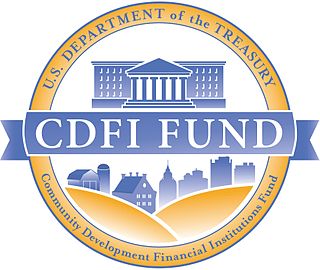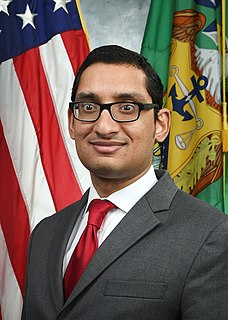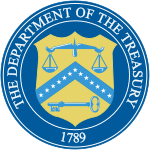Office of Financial Institutions Policy
The Office of Financial Institutions Policy (OFIP) develops, analyzes, and coordinates the Department of the Treasury’s policies on legislative and regulatory issues affecting financial institutions, including depository institutions, insurance companies, government sponsored enterprises, securities firms, finance companies, mutual funds, and all other regulated and unregulated financial intermediaries. The office’s principal focus is on issues dealing with safety and soundness, market structure, condition, and competitiveness, and regulatory structure. The Office of Financial Institutions Policy is led by the Deputy Assistant Secretary for Financial Institutions Policy.
Within the Office of Financial Institutions Policy are:
- The Terrorism Risk Insurance Program (TRIP), led by the Executive Director of the Terrorism Risk Insurance Program. The TRIP is a system of shared public and private compensation for insured losses resulting from acts of terrorism.
- The Community Development Financial Institutions Fund (CDFI Fund), led by the Director of the Community Development Financial Institutions Fund. The CDFI Fund is responsible for expanding the capacity of financial institutions to provide credit, capital, and financial services to under-served populations and communities in the United States.

The Department of the Treasury (USDT) is the national treasury and finance department of the federal government of the United States, where it serves as an executive department. The department oversees the Bureau of Engraving and Printing and the U.S. Mint. These two agencies are responsible for printing all paper currency and coins, while the treasury executes its circulation in the domestic fiscal system. The USDT collects all federal taxes through the Internal Revenue Service; manages U.S. government debt instruments; licenses and supervises banks and thrift institutions; and advises the legislative and executive branches on matters of fiscal policy. The department is administered by the secretary of the treasury, who is a member of the Cabinet. The treasurer of the United States has limited statutory duties, but advises the Secretary on various matters such as coinage and currency production. Signatures of both officials appear on all Federal Reserve notes.

The Treasurer of Australia is a high ranking official and senior minister of the Crown in the Government of Australia who is the head of the Ministry of the Treasury which is responsible for government expenditure and for collecting revenue. The Treasurer plays a key role in the economic policy of the government. The current Australian Treasurer is Jim Chalmers whose term began on 23 May 2022.
Manitoba Finance is the department of finance for the Canadian province of Manitoba.
Community development bank (CDB) or Community Development Financial Institution (CDFI) is a development bank or credit union that focus on serving people who have been locked out of the traditional financial systems such as the unbanked or underbanked in deprived local communities. They emphasize the long term development of communities and provide loans such as micro-finance or venture capital.

The Terrorism Risk Insurance Act (TRIA) is a United States federal law signed into law by President George W. Bush on November 26, 2002. The Act created a federal "backstop" for insurance claims related to acts of terrorism. The Act "provides for a transparent system of shared public and private compensation for insured losses resulting from acts of terrorism." The Act was originally set to expire December 31, 2005, was extended for two years in December 2005, and was extended again on December 26, 2007. The Terrorism Risk Insurance Program Reauthorization Act expired on December 31, 2014.

The Community Development Financial Institutions Fund promotes economic revitalization in distressed communities throughout the United States by providing financial assistance and information to community development financial institutions (CDFI). An agency of the United States Department of the Treasury, it was established through the Riegle Community Development and Regulatory Improvement Act of 1994. Financial institutions, which may include banks, credit unions, loan funds, and community development venture capital funds, can apply to the CDFI Fund for formal certification as a CDFI. As of September 1, 2005, there were 747 certified CDFIs in the U.S. The CDFI Fund offers a variety of financial programs to provide capital to CDFIs, such as the Financial Assistance Program, Technical Assistance Program, Bank Enterprise Award Program, and the New Markets Tax Credit Program.
A community development financial institution (US) or community development finance institution (UK) - abbreviated in both cases to CDFI - is a financial institution that provides credit and financial services to underserved markets and populations, primarily in the USA but also in the UK. A CDFI may be a community development bank, a community development credit union (CDCU), a community development loan fund (CDLF), a community development venture capital fund (CDVC), a microenterprise development loan fund, or a community development corporation.

The Financial Institutions Reform, Recovery, and Enforcement Act of 1989 (FIRREA), is a United States federal law enacted in the wake of the savings and loan crisis of the 1980s.
The USA PATRIOT Act was passed by the United States Congress in 2001 as a response to the September 11 attacks in 2001. It has ten titles, with the third title written to prevent, detect, and prosecute international money laundering and the financing of terrorism.
The Financial Consumer Agency of Canada (FCAC) is an agency of the Government of Canada that enforces consumer protection legislation, regulations and industry commitments by federally regulated financial entities. It also provides programs and information to help consumers understand their rights and responsibilities when dealing with financial institutions and promotes financial literacy.

The Ministry of Finance is a ministry within the Government of India concerned with the economy of India, serving as the Treasury of India. In particular, it concerns itself with taxation, financial legislation, financial institutions, capital markets, centre and state finances, and the Union Budget.
The New Markets Tax Credit (NMTC) Program is a federal financial program in the United States. It aims to stimulate business and real estate investment in low-income communities in the United States via a federal tax credit. The program is administered by the US Treasury Department's Community Development Financial Institutions Fund and allocated by local Community Development Entities (CDEs) across the United States.

The federal administration of Switzerland is the ensemble of agencies that constitute, together with the Swiss Federal Council, the executive branch of the Swiss federal authorities. The administration is charged with executing federal law and preparing draft laws and policy for the Federal Council and the Federal Assembly.

Randal Keith Quarles is an American private equity investor and attorney who served as the first Vice Chair of the Federal Reserve for supervision from 2017 to 2021. He concurrently served as the chair of the Financial Stability Board from 2018 to 2021.

Michael S. Barr is an American legal scholar serving as the second Vice Chair of the Federal Reserve for Supervision since 2022. Barr previously served as assistant secretary of the treasury for financial institutions under President Barack Obama from 2009 to 2011.

The Ministry of Finance, abbreviated MOF, is a ministry of the Government of Malaysia that is charged with the responsibility for government expenditure and revenue raising. The ministry's role is to develop economic policy and prepare the Malaysian federal budget. The Ministry of Finance also oversees financial legislation and regulation. Each year in October, the Minister of Finance presents the Malaysian federal budget to the Parliament.

Christopher Campbell is a former American political aide and senior government official who previously served as Assistant Secretary of the Treasury for Financial Institutions. He was unanimously confirmed as Assistant Secretary by the United States Senate in 2017. Prior to assuming his Department of Treasury role, Campbell was the majority staff director for the United States Senate Committee on Finance and a staffer on the United States Senate Committee on the Judiciary.
The Office of the Assistant Secretary for Planning and Evaluation (ASPE) is the principal advisory group to the United States Secretary of the Department of Health and Human Services (HHS) on policy development and provides coordination and support for HHS's strategic and policy planning, planning and development of legislation, program evaluation, data gathering, policy-related research, and regulatory program.

Bimal V. Patel is an American attorney who served as the Assistant Secretary of the Treasury for Financial Institutions and Deputy Assistant Secretary of the Treasury for the Financial Stability Oversight Council. He was one of the “architects” of the emergency $660 billion Paycheck Protection Program in 2020.











